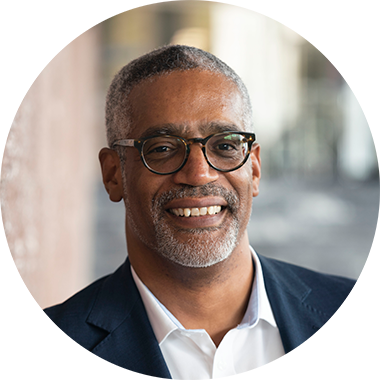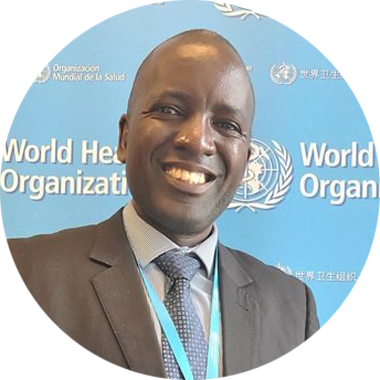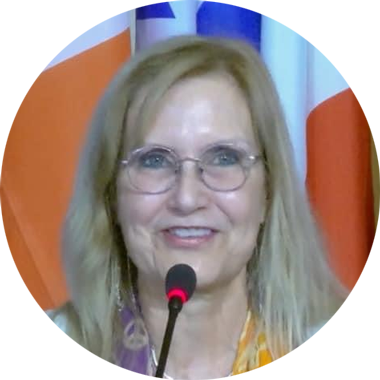
Momoe Takeuchi
Country Liaison Officer - Northern Micronesia Country Office
(Federated States of Micronesia, Republic of Marshall Islands
and Republic of Palau)
Momoe Takeuchi is from Tokyo, Japan, but travelled abroad with her family and had many foreign influences while growing up. Although she didn’t know what her path would be when she chose literary studies, she’s aware that this exposure and her parents’ continuous encouragement helped her become what she is today.
Momoe began business studies in the USA but did a U-turn after the Gulf War started, and she began to understand the importance of peace for world development as well as the role the United Nations could play. The war became a catalyst for switching lanes to study international economics and development with the idea of working in the UN. It was also a time when the Soviet region was collapsing and many Asian economies were changing from a social to a market economy. Momoe went to Mongolia to complete a field study and saw how the effect of the economic changes had been devastating to the nomadic tribes, particularly for maternal and women’s health. This was a game changer for her, and she realized the huge impact of economic disruptions on people’s health. She had found an area that she was excited to contribute to. She studied this further and included a dissertation on the impact of “Doi Moi” (reform for open market economies) in Vietnam for her PhD in public health.
She successfully applied for an internship with the European Observatory on Health Systems in the WHO European Regional Office and a Junior Professional Officer programme position as a Technical Officer in health policy and financing in WHO headquarters. During this time she met and conversed in Japanese with the late Dr J.W. Lee, WHO’s Director-General, who was a champion of country support and an inspiration to Momoe. His sudden death in May 2006 was a profound shock to everyone and she felt inspired to repay his legacy by looking for a country office posting. She successfully applied for a position as a technical officer in the polio immunization programme in the WHO Country Office for Bangladesh and started before the end of the same year.
Today Momoe is WHO’s Country Liaison Officer for Northern Micronesia, an area of thousands of small islands north of Papua New Guinea. It stretches from Palau in the east to the Marshall Islands in the west and is grouped and governed by several nations. Momoe has worked for WHO now for 20 years and served in many countries, so she is used to adapting to different cultures, styles of management and communication protocols. She has already had a taste of working as head of a WHO country office while filling in for the position in Cambodia and Lao PDR. She also puts part of her career trajectory down to having worked at all 3 levels of the organization – headquarters, regional and country – which has provided her with an overview of the different roles for each level and how they work together. Her planning officer role in WHO headquarters prepared her to understand WHO’s strategic and operational planning and budgeting mechanisms, and the results-based framework of WHO’s programmes management. Before joining WHO she also worked as a healthcare sector researcher in Japan on projects with the Ministry of Health, hospitals and health insurance funds and gained experience that would prove useful when working to set up health systems in Asia later in her career.
There is such a wide variety of professions that can contribute to WHO’s mission, all you really need is a passion to improve world health!
She recalls a time in the Western Pacific Regional Office when the team was swamped with a lot of cumbersome proposals on health systems strengthening. One of her supervisors told her she may feel stressed with all this number crunching and paperwork, but to focus on the impact on hundreds and thousands of people who may be able to access immunization, testing, treatment or medicines once these programmes are funded and functional. “That was exactly the motivation I needed that day,” says Momoe. “My source of motivation is always the people and the community that WHO serves.”
Momoe has worked with people from many backgrounds and explains, “Diversity in our teams – different disciplines, skills and backgrounds – will create a stronger workforce as WHO adapts to today’s complex and evolving global health agenda. Meeting these challenges requires multi-disciplinary expertise beyond traditional medical professionals. We also need a good mix of international and national staff: the former brings the most recent global and regional knowledge and insights while the national staff are vital to translating these into the local contexts,” she explains. “Today’s leaders are encouraging more gender parity at all levels in WHO, which is just as important.” She reflects on her original trip to Mongolia and the focus on women’s health in that context.
Momoe believes that everybody with a passion to improve people’s health around the world can help make a difference. “WHO needs public health professionals, but we also need people in communications, external relations, finance and budget, administration, human resources, information technology, programme management and more. That’s why I always advocate for young people to consider WHO as a future employer,” she says. “All you need is a passion and you can find a way to contribute to WHO’s mission!”



